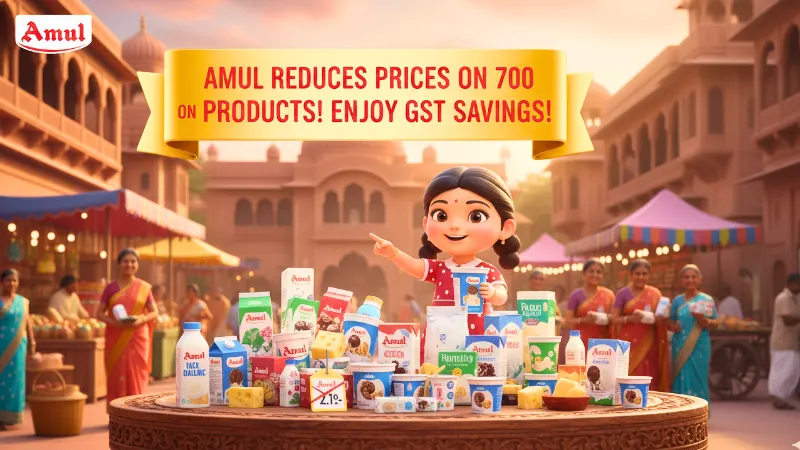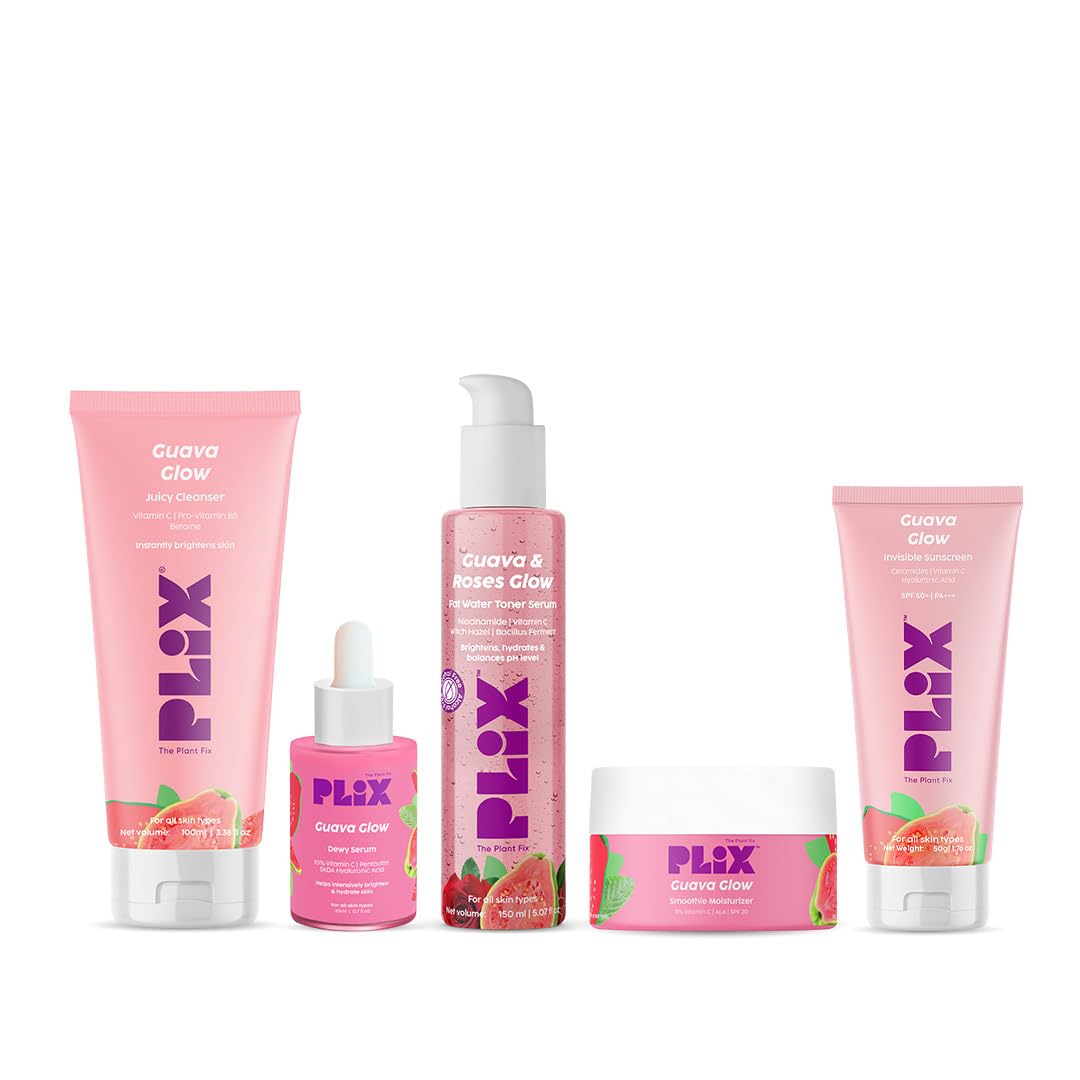The news is a reason to celebrate for millions of Indian households. In a landmark move, India’s largest food brand, Amul, has announced a significant price reduction across more than 700 of its products. This major step comes in direct response to the government’s recent Goods and Services Tax (GST) rate cuts on a wide range of essential food items.
By fully passing on the GST benefits to its customers, Amul is making daily staples more affordable, a decision that will have a positive ripple effect on household budgets across the nation.

But what exactly does this mean for your monthly grocery bill? Which products are now cheaper, and by how much? And how does this compare to a key competitor like Mother Dairy, which has also announced price cuts? Let’s dive deep into the details and understand the full impact of Amul’s decision to reduce the prices of 700 products.
The GST Rate Revision: A Game-Changer for the Dairy Industry
The recent GST council meeting, led by Finance Minister Nirmala Sitharaman, introduced significant reforms to the tax structure on several food products. The “Next-Gen GST Reform” has simplified the tax slabs, with many dairy products now falling under the lowest 5% or even the nil GST bracket.
For instance, items like butter, ghee, and cheese, which previously attracted a GST of 12%, have now been shifted to the 5% slab. UHT (Ultra-High Temperature) milk and packaged paneer, which were at 5%, are now completely exempt from GST.
This rationalization is a huge win for consumers, as it directly reduces the final cost of these products. Amul’s parent company, the Gujarat Cooperative Milk Marketing Federation (GCMMF), has been quick to implement these changes, ensuring that the full benefit of the GST reduction is transferred to the end-user.

This move is not just about making products cheaper; it’s also about stimulating the market. As stated by Jayen Mehta, managing director of GCMMF, “Amul believes the reduction in prices will spur consumption of a wide range of dairy products, particularly ice cream, cheese and butter, as the per capita consumption remains very low in India, creating a large growth opportunity.”
Amul’s Price Cut: A Closer Look at the New Rates
The price cuts on the 700 products are set to be effective from September 22, 2025. The reductions vary depending on the product category and pack size. Here’s a breakdown of some of the most notable price changes that will benefit consumers:

- Ghee: A 1-litre ghee carton is now cheaper by ₹40, while a 5-litre tin has seen a massive reduction of ₹200. The new price for a 1-litre ghee carton is ₹610, down from the earlier ₹650.
- Butter: The popular 100 gm butter pack will now cost ₹58, a reduction of ₹4 from its previous price of ₹62. The 500 gm pack is also cheaper by ₹20.
- Cheese: Amul processed cheese block (1 kg) has been reduced by ₹30, with the new price being ₹545. The 200 gm frozen paneer pack will now cost ₹95, a decrease of ₹4.
- UHT Milk: The 1-litre tetra pack of UHT milk, which is now GST-free, will see its price reduced by ₹2, making it more affordable for many.
It is important to note that the price of everyday fresh pouch milk remains unchanged as it has always been exempt from GST.
Read in Hindi: New GST Rates 2025: देखें सस्ता-महंगा होने वाले सामानों की लिस्ट
A Head-to-Head Comparison: Amul vs. Mother Dairy
While Amul’s announcement is making headlines, its primary competitor, Mother Dairy, was one of the first to announce similar price reductions. This competitive landscape ensures that consumers get the best possible deal. Let’s compare some of the key product prices after the GST cuts.
| Product Category | Amul New Price | Mother Dairy New Price |
|---|---|---|
| Butter (100 gm) | ₹58 | ₹58 |
| Ghee (1-litre carton) | ₹610 | ₹645 |
| Paneer (200 gm) | ₹95 | ₹92 |
As the table shows, both dairy giants have been quick to pass on the GST benefits to their customers, leading to a competitive pricing environment. While the prices for a 100 gm pack of butter are identical, there is a difference in the price of other products. Mother Dairy has a slight edge on paneer prices, while Amul’s ghee is now more affordable. This healthy competition benefits the consumer, forcing brands to be more transparent and customer-centric.
The Larger Impact: What This Means for You
This move by Amul and Mother Dairy is more than just a price change. It reflects a positive shift in the market, where companies are prioritizing consumer welfare by adhering to the spirit of the GST reforms. Here’s a breakdown of the wider implications:
- Increased Household Savings: For a typical Indian family that consumes a significant amount of dairy products, these price cuts can lead to tangible savings on their monthly budget.
- Boost to Consumption: By making products like cheese and ice cream more accessible, the GST reduction is expected to increase their per capita consumption in India, which is currently very low compared to global standards.
- Direct Benefit to Farmers: As demand for packaged dairy products grows, it will lead to an increased demand for milk from the farmers who are part of these cooperatives. This, in turn, will improve their livelihood and strengthen the entire dairy value chain.
A Win-Win for Consumers and the Dairy Industry
Amul’s decision to reduce the prices of over 700 products is a testament to its commitment to its customers and its cooperative values. By acting swiftly to pass on the GST rate cut benefits, Amul has not only provided a much-needed financial relief to millions of households but has also set a benchmark for other companies.
This move, along with similar actions by competitors like Mother Dairy, signals a new era of affordability and transparency in the dairy market.
The GST reforms have created an opportunity for both brands and consumers to thrive. As a result, your next shopping trip to the local store or Amul Parlour will be a more pleasant and budget-friendly experience.














